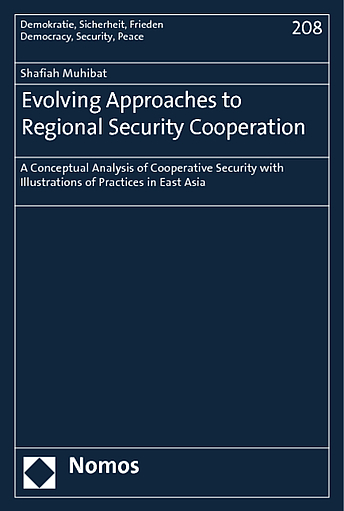englischThis book clarifies the concept of cooperative security as an approach to regional security cooperation, using two research methods: conceptual analysis and multiple case studies. The book provides evidence that: (1) there are at least three different concepts of cooperative security; (2) the concept has been interpreted differently when it is used to explain different phenomena in different regions; and (3) the concept changes according to the dynamics that characterize the particular region where it is applied. This book argues that the interplay between changes in threat perceptions and changes in norms may consequently change the form of regional cooperation. Threats shape state interests, and consequently affect state policies. When an object or phenomenon becomes perceived as a threat, such a perception plays a great role in determining what is in the state’s interest. The need for change becomes more urgent when it is sensed that the “old” norms are being tested by the “new” threats. Two case studies, both in the East Asian region, are done to illustrate this hypothesis.
Diese Studie verdeutlicht das Konzept der kooperativen Sicherheit als Ansatz zur regionalen Zusammenarbeit in Sicherheitsfragen mit zwei Forschungsmethoden: eine konzeptuelle Analyse, ergänzt um Fallstudien. Mit dem sozialen Konstruktivismus als seinem wichtigsten Analyseinstrument beschreibt die Autorin, wie das Konzept der kooperativen Sicherheit sich abhängig von Dynamik und Kontext innerhalb der Region ändert.
In englischer Sprache.


